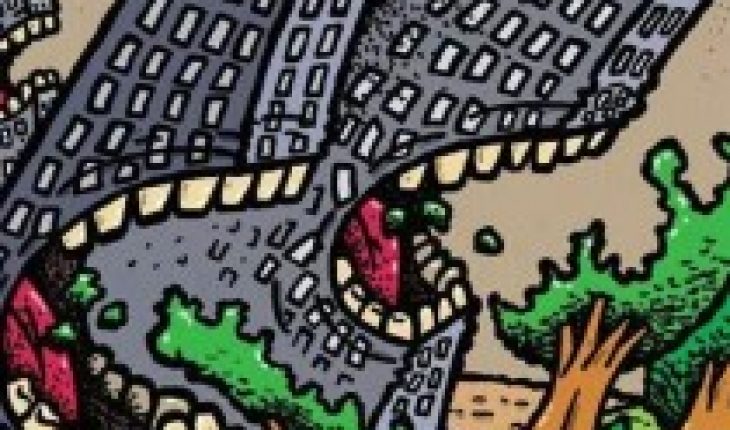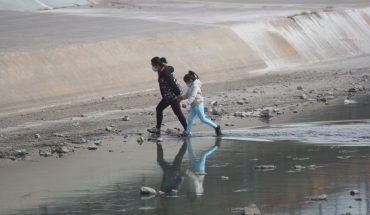For a long time in Western culture the idea has prevailed that man is the center of the universe, and that everything non-human only exists to be used, consumed, possessed or destroyed by humans. Everything non-human, in that conception, is at the service of humans, and can be razed, annihilated, reduced, or destroyed. To this anthropocentric conception was added for a long time the idea – based on the limitation of geographical horizons – that the goods of nature were inexhaustible, and that nature itself was responsible for replacing that which is destroyed or deteriorated. A third point of view that has been conjugated together with the two previous elements is the logic of capitalism, in which everything can be the object of private appropriation and everything can assume the form of a commodity.
All this anthropocentric and predatory conception began to crumble in the second half of the last century, when it began to become evident that natural resources are not inexhaustible, but are limited, and if they are destroyed, they are not automatically replenished. It was also evident that the action of man, by destroying nature, to produce more and more commodities, endangers human life. Concern for human life, through the care of nature, has become the center of world concerns, and what is called an ecocentric conception has emerged with force.
The ecocentric conception emphasizes the importance of ecosystems, including in them their living and non-living components, human and non-human.
Ecocentrism not only contradicts the anthropocentric conception, in which everything existed by and for man. It also forces man to accept his limitations and his smallness, putting him to share his destiny and his responsibilities with plants and animals, and other non-living elements of the ecosystem.
The idea that nature has rights, just as human beings do, has also emerged strongly.
But man is a constitutive part of nature. Man is a product of nature. Therefore, we can say that it is not possible to speak of the rights of nature and the rights of man as if they were two separate entities. It would be more valid to speak of the rights of non-human nature and the rights of the human part of nature.
Each of the parts that make up that whole, keeps with the other a systemic relationship, understanding by such not only the fact that they are elements that are part of the same system, but that they maintain between them relations that are necessary and vital both for the survival of each of the parts and for the survival of the system as a whole. The system is not only the sum of the parts, but a network of relationships between them. Each of the parties must respect and ensure the right to the existence of the other, since, in that systemic relationship, the destruction of non-human nature necessarily implies the destruction of man.
If man razes the forests and natural jungles; whether it pollutes the air that humans and non-humans breathe with greenhouse gases; if it pollutes the land and waters with chemicals of all kinds, which destroy the potentialities and qualities of non-human nature and limit the life possibilities of the human species and other animal species; whether it uses coal and coal-intensively as energy resources; if it practically makes disappear thousands of animal and plant species that are in danger of extinction, that have already disappeared completely or that do not have the capacity to reproduce, since the ecosystems on which their lives depended have been devastated; if the average temperature of the Earth rises and the glaciers and poles melt and the level of the sea waters rises, all this is not only an attack on non-human nature, but it is an attack on the very possibility of human life surviving on the face of the planet.
If we say that man has no right to destroy nature, we are saying that non-human nature, in its relationship with man, has the right to existence and to the reproduction of its life cycles.
The rights of man are, among others, the right to life, the right to a healthy life, the right to breathe air not contaminated with elements that are harmful to his health, the right to drink water equally uncontaminated with substances that harm man and the rest of non-human nature. Man has the right to obtain from the rest of nature the aliMents and other goods that he needs for the purposes of ensuring the production and reproduction of his life, but without generating situations that spoil or prevent the reproduction of the vital cycles of non-human nature.
None of the above can be interpreted as meaning that man must have, with respect to non-human nature, a merely contemplative attitude, without interacting with it. This is not possible, for the human species has no capacity to survive if it does not interact with non-human nature. On the contrary, man must be nourished by what non-human nature offers him – food and other goods – but without that activity implying detriment or death of non-human nature. In other words, man has a duty to act with respect to non-human nature in such a way as not to affect the existence and reproductive capacity of it. The duties of man and the rights of nature are two sides of the same coin.
The content expressed in this opinion column is the sole responsibility of its author, and does not necessarily reflect the editorial line or position of El Mostrador.





